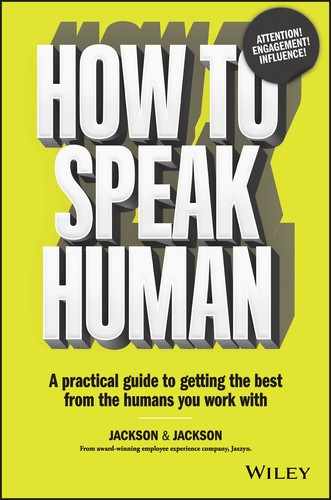
Names
The undeniable sweetness of a well-chosen name
It’s somewhat ironic that Shakespeare, a man whose reputation is tied to words, penned the line ‘a rose by any other name would smell as sweet’. In our old pal Willy’s play Romeo and Juliet, Juliet indulges in a good old-fashioned soliloquy to convince herself that it doesn’t matter that Romeo has the surname ‘Montague’. She insists his name makes no difference, even if it is the name of her family’s arch-enemy.
Almost everyone knows how things worked out for those two loved-up optimists, but the real tragedy here is that this line has been parroted for the better part of 400 years whenever someone wants to belittle the importance of a name.
‘A rose by any other name would smell as sweet …’
No! The play’s ending alone negates the argument, but research also proves Juliet was wrong. Names do matter. They influence the way we think about and remember things. They define and shape relationships.
Over the past 15 years we’ve helped name numerous programs, initiatives and events. One we recall particularly easily was renaming the very literal, and decidedly unmemorable, Systems Meeting. The event brought hundreds of leaders from around the globe to plan for the next five years. This came at a considerable cost, with high expectations for a return on investment.
Such names are all too familiar. Drivers Manual, Leadership Summit, Culture Change Program — these generic titles could belong to any business, and give us little idea of how they might be different, interesting or in any way relevant. In the case of the Systems Meeting, the name in no way embodied what the four-day innovation, strategy and planning event could achieve. It sounded much like any other technical meeting held on a weekly basis.
Names differentiate and help us remember
A well-chosen name elevates an idea and differentiates it from everything that’s come before. It makes it unique to our organisation or department, and far more likely to stick in our mind.
Names influence the way we think
A name can set expectations and convey personality. It can communicate important information about a program, initiative or event before we experience it. This makes naming a powerful opportunity for cognitive framing.
Names set the tone for our relationships
It’s not just about what we call our programs, initiatives and events. What we call other people sets the tone for our relationships. Do we refer to each other by title, family name, given name or nickname?* Do we even know each other’s names? Do our role descriptions amplify hierarchy or flatten it? When we’re looking to shift culture, how we refer to one another is an important consideration.
What’s in a name?
We promised you proof that names make a difference.
In an adorably academic ‘screw you’ to Shakespeare, Jelena Djordjevic and pals at McGill University and the Montreal Neurological Institute conducted a study called ‘A Rose by Any Other Name: Would It Smell as Sweet?’ to find out if the way a scent is named influences how people perceive it.
Turns out, it does. Subjects were served a buffet of 15 scents, from foul to neutral to nice. Each smell was presented with names that were positive (‘carrot juice’), neutral (a two-digit number) or negative (‘mouldy vegetables’). Perversely, no matter how good or gross the smell, people rated it as more pleasant when it was presented with a positive name, and less pleasant when presented with a negative name. This wasn’t a subjective rating, either — it was physiological. When the smell had a positive name, subjects sniffed more, and their skin conductance and heart rate showed greater arousal.
Speaking of smelly things: children. Researchers Harari and McDavid found that the names we give our progeny can affect their academic results. The experiment provided a group of teachers with essays to grade. Nothing unusual there, except that the teachers weren’t aware that the names on the essays were fake. In a very unfortunate finding for anyone saddled with an uncomely moniker, students with unpopular or unattractive names (‘Mildred’ or ‘Reginald’) received significantly lower grades than the kids with attractive or popular names (‘Jennifer’ or ‘Dougal’).
Perhaps even more importantly for our offspring’s self-esteem, MIT researcher Amy Perfors found that our name can influence how attractive others find us. Perfors posted photos of 24 of her friends at hotornot.com, a site where people are rated on their looks. She compounded this cruelty by posting each photo twice, using two different names. Surprisingly, the same photo received different ratings depending on the name used.
For females, it seems we find full, round-sounding names (‘Laura’ or ‘Sally’) more attractive than names with smaller, sharper vowel sounds. For males, names with vowel sounds made at the front of the mouth (‘Evan’ or ‘Ivan’) make a man seem more handsome.
The moral of this story is to avoid friendships with psychologists, but also to save yourself hours on the porch with a shotgun during your child’s adolescence by bestowing on her a hideous name.
The pros and cons of putting things in categories
Studies also show we’re more likely to remember something when we know its name.
In an experiment veering into the paranormal, psychologist Gary Lupyan showed subjects a series of images of aliens and asked them to guess whether they were friendly or hostile. After each response, they were told if they were right or wrong, helping them learn the subtly distinct features that indicated each alien’s intentions.
But here’s the twist: before the experiment, a quarter of the group were told that the friendly aliens were known as Leebish and the hostile ones were Grecious; another quarter were told the opposite; and for the remaining half the aliens remained nameless. The results revealed that the half who were told the aliens had names learned to categorise the aliens faster, reaching 80 per cent accuracy in less than half the time taken by the other group.
How we categorise things also influences the way in which we remember them.
In an experiment with much more mundane subject matter, a lucky bunch of participants viewed furniture taken from an IKEA catalogue. In half the questions they were asked to label the object (‘chair’, ‘bed’, ‘lamp’, etc.); the rest of the time they simply had to say whether they liked it or not. Interestingly, in the instances when people labelled the product, they found it more difficult to remember specific details about it later. The act of categorising tends to make things more similar and generic in our minds.
As exciting as extraterrestrials and Swedish furniture are, what do these findings mean for us?
Well, they show how important naming is in learning applications. If we can ensure people remember a name — be it a system, process, program or hazard — they’ll find it easier to recall details and facts about it later.
At the same time, we also need to be wary of how things are categorised, especially if we want people to remember specific details. This is particularly relevant when the characteristics are different from what’s normally found in that category, or when the category carries negative associations.
Using the word ‘program’ instantly positions it with a whole set of existing beliefs and assumptions. Which is fine, unless we want people to think about it differently. Perhaps it’s better categorised as an ‘experience’ or ‘initiative’ — these categories have different connotations. Even better, if we want people to think about it entirely differently, let’s give it a unique and memorable name.
Change the name, change the perspective
Names and categories are closely connected. Often the name we assign something is also a category, and this is where things get really interesting.
Has calling a department and industry ‘Human Resources’, implying people are ‘resources’ and ‘assets’, perpetuated a point of view that celebrates the pursuit of profit at the expense of people? Have these names influenced the way people have been treated at work, and the way they approach their work as a result?
It sure seems likely, especially as more organisations shift from ‘Human Resources’ to ‘People and Culture’ and ‘Employee Experience’ terminology. While a simple name change might not seem like much, it certainly parallels the trend towards a more human workplace, where people are treated as more than something to be used and expended.
Do we refer to ‘resources’, ‘assets’ or ‘staff’, or do we say ‘employees’? Even better, why not use ‘our people’? Similarly, are we referring to our customers with generic titles like ‘the client’, or are we using their names?
Call someone by a name often enough, and not only will we see them that way, but they’ll likely begin to see themselves that way too — and act the part. The names and categories we use can actually influence people’s perspective and behaviours.
Airbnb uses ‘host’ to refer to the people offering their properties for rent. There are many options they could have used, but this particular word carries a welcoming tone. Others, like ‘landlord’, would have conveyed a very different feeling.
Subway calls their people ‘artists’ — which is a relative term, we guess. Is it simply for the customer’s benefit? Or does it also subliminally encourage Subway’s people to take pride in a well-crafted sandwich? Perhaps a simple name has the potential to turn a bored teen working in fast food into a ranch-sauce-toting artist attacking foot-longs with the inspired abandon of Jackson Pollock.
A representation of relationships
Within any culture, language and categorisation play an important social role in constructing group identity and hierarchy.
Deixis refers to the way certain words refer to objects, people and places in relation to their position in time and space. This concept is also used to signal social distance between people.
In English, we use given names when we’re on familiar terms, and titles like ‘sir’, ‘Mrs’, ‘Doctor’ or ‘Your Honour’ when we’re less familiar, to show respect. Other languages use more complex conventions, with variations depending on gender, age or social class.
In East Asia, different words are used depending on whether the speaker is talking to someone of higher or lower social status. In Australia, the Indigenous language Dyirbal requires a married man to use a specific set of words when speaking in the presence of his mother-in-law.
What deixis exists within our work culture? Do we address each other formally by title or informally by given name? Does our language amplify hierarchy or flatten it? These are important cultural considerations when determining the relationships we want to establish.

Note
* At Jaxzyn, we sure do love nicknames. Old Mate, T-Bone, J-Rad, KB, B, Samwise and Nads are just a few.
